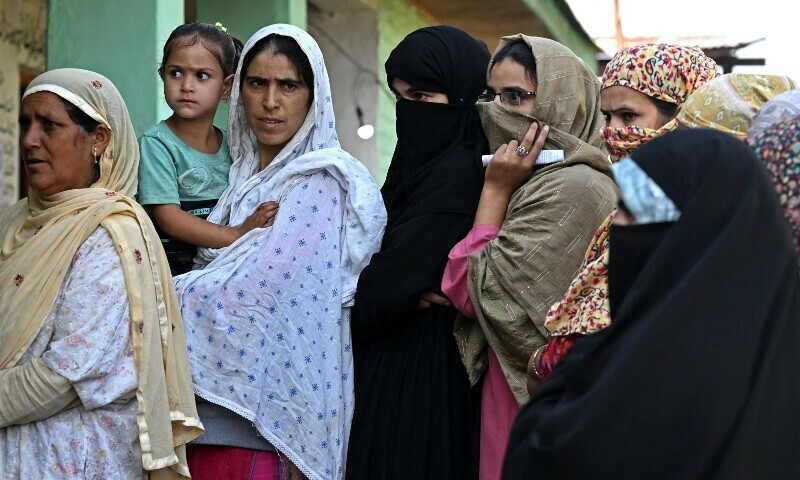WORLD NEWS

India-occupied Kashmir (IoK) is voting today in the third and final round of elections aimed at establishing its first government since being brought under New Delhi’s direct control. This significant electoral event follows the controversial decision by Prime Minister Narendra Modi’s government in 2019 to revoke the territory’s partial autonomy, a move that sparked mass arrests and a prolonged communication blackout.
Since that pivotal moment, IoK has been governed by a federally appointed governor, and elections have been delayed, leaving the region without an elected government for several years. The atmosphere during today’s voting is heavily fortified, with over half a million Indian troops deployed throughout the area, particularly around polling stations in Baramulla district, where armed soldiers are ensuring security amid heightened tensions.
The campaign leading up to the elections has been marked by rising unemployment and widespread discontent regarding the 2019 constitutional changes. Local political parties are rallying support, promising to advocate for the restoration of the region's autonomy and address pressing economic issues.
Voter turnout has been encouraging, with more than 55% of eligible voters participating in the first two rounds of polling. Historically, previous elections have seen lower turnout figures due to boycotts initiated by Kashmiri separatist groups, who have long sought self-determination for the region.
The ruling Bharatiya Janata Party (BJP) claims that the 2019 governance changes have ushered in a new era of peace and economic development in IoK. However, this assertion is met with skepticism from local parties, which argue that the increased military presence and security measures have significantly curtailed civil liberties and civil rights.
The elections are taking place in two distinct regions: the predominantly Muslim Kashmir Valley and the Hindu-majority Jammu district in the south, which is geographically separated from the valley by mountains. The BJP has fielded candidates in all constituencies in Jammu but is contesting only about a third of the seats in the Kashmir Valley.
Regardless of the election outcome, critical decisions regarding IoK's governance will remain firmly in the hands of the central government in Delhi, which holds the parliamentary majority to override any legislation passed by the newly elected 90-seat assembly.




